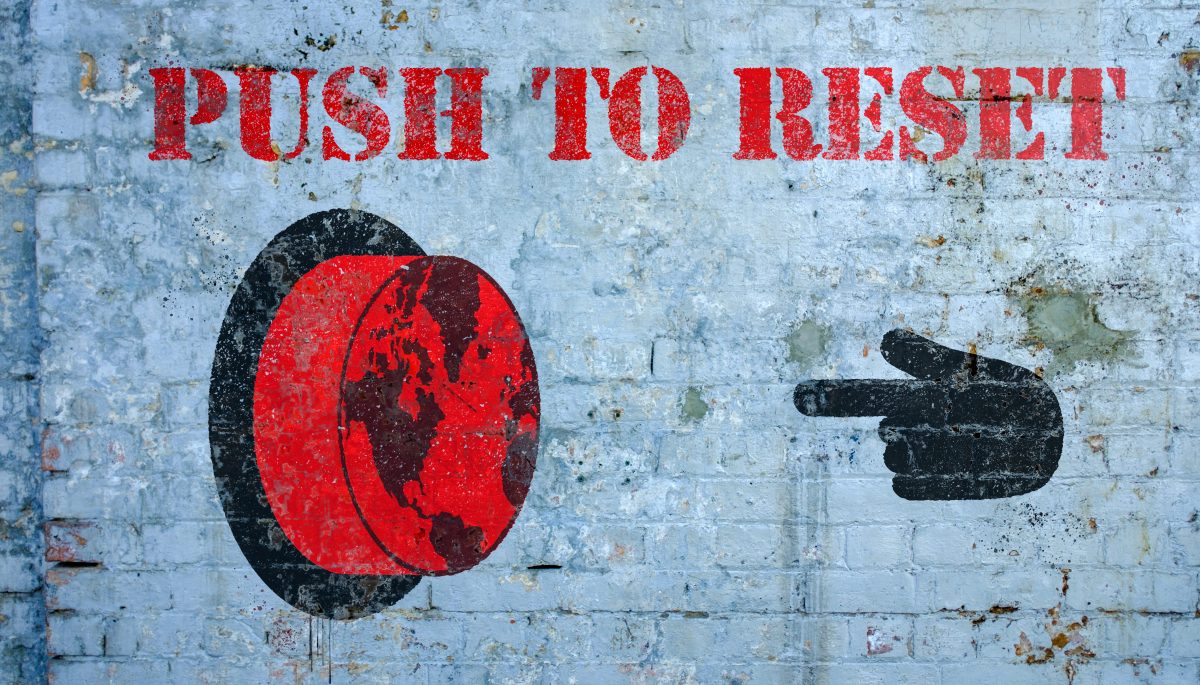What does it mean to care for stories in a time of separation? How do we centre culture as a civil right in Australia’s increasingly superficial public discussion? How do we move beyond the ‘jobs and growth’ narrative to rearticulate public value? What will it take to secure the economic rights of cultural workers? And how best to harness the voices that create Australia’s future?
This month, a series of Adelaide-based conversations under the Reset Arts and Culture banner will culminate in a bold event designed to set a new public agenda for the arts.
With thanks to arts champions the Arts Industry Council of South Australia, the Reset collaborators (Flinders University, University of Adelaide, University of South Australia), and thought leaders the Don Dunstan Foundation, Reset will bring us all together for two transformative days.
And just in time, too: we’re almost ready to re-emerge from lockdown exhaustion and re-energise our thinking.
TAKING CARE OF ONE ANOTHER
The crisis work necessitated by the pandemic has motivated many artists to rearticulate their passions and take a public stand, and organisations to reconfigure their data into advocacy assets. For many, this has been a time of retreat from public engagement, while doing their best to protect one another and prioritise survival.
We’ve long spoken of the arts being an ecology and just as our interdependencies are great strengths, our fragilities also unite us.
Having seen Australia’s much-needed national arts and culture priority displaced by gas, delays, inequities, delays, distraction, underestimation, neglect, delays, and the latest one, a typo, it’s difficult to remain engaged with sector issues. Of course, the deliberate deprioritisation of the arts is designed to do exactly that: to exhaust the most bold, creative and articulate people in the nation. But that exhaustion is real – and great care is needed as we navigate our next steps.
If you’re ready to re-engage come mid-November: here’s the event we need.
AN URGENT AGENDA
Reset presents two keynotes – Daniel Riley, Jacob Boehme and Kirstie Parker, and Tony Burke – four conversations and two evening events. Plus there’s ‘I’ll take that as a comment’: an open call for seven-minute pitches offering transformative ideas.
For each of the four conversations there’s an artist, a researcher, a policy-maker and a practitioner, each of whom have long been publicly and politically engaged on these issues (disclosure: I’m on the final one).
There are artists, unions, creative organisations, state institutions, journalists, academics, think tanks, government colleagues and major party politicians (the Federal Arts Minister was invited) – a great balance of the industry, policy and public engagement needed to build that more comprehensive approach.
Different tactics for different times will be a key theme across Reset. Six years ago, a former minister for the arts attempted the wholesale politicisation of arts policy and funding, eventually losing his job and having to give most of the money back. Under the cover of the pandemic, that politicisation has been achieved at unprecedented scale, with some highly questionable grant outcomes in favour of peer-assessed, evidenced proposals.
Early last year, the sector focused on joint approaches to articulating how best to invest in arts and culture for the good of the nation. We now see the emergence of client relationships whose compliance neutralises a more urgent approach to articulating what’s at stake culturally. Universities have also been debilitated through this politicisation: the deliberate decision not to support them through the pandemic has closed arts programs across Australia, instituting a climate of trepidation.
Artists, organisations and academics coming together at this time is crucial. When ideology and not evidence-based need is the basis for decision-making, it diminishes us all. Especially when those decisions affect how creative work and knowledge is created and shared.
INSPIRATION FROM INTERNATIONAL MODELS
Elsewhere in the world, fairer deals are being struck for artists: Ireland’s three-year pilot Basic Income Guarantee Scheme, for example. Germany announced €50bn in support for the creative and cultural sectors right at the very outset of the pandemic, recognising how crucial the sectors are to the future of the nation, and ensuring that small businesses and freelancers would be covered.
Canada has just announced a major economic package for the pandemic transition, recognising that hardest-hit sectors such as the creative industries need targeted policy and support measures. And last week, the European Parliament has called for a European Status of the Artist ‘common framework for working conditions and minimum standards for all EU countries.’
In Australia, a culture of publicly valuing arts and culture is something we have only ever experienced in transient glimmers.
Finding ever new ways to articulate the value of arts and culture can, of course, become its own trap, perpetually relegating us to the margins when in fact we are the mainstream. Let’s instead articulate action agendas that involve all of us, alleviating our exhaustion and bringing out our best.
Reset: A New Public Agenda for the Arts is on 11 – 12 November 2021. You can participate online or in Adelaide, and tickets are extremely reasonably priced.





